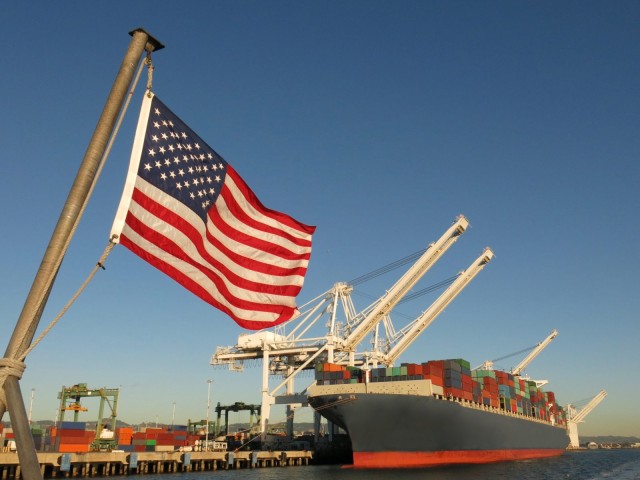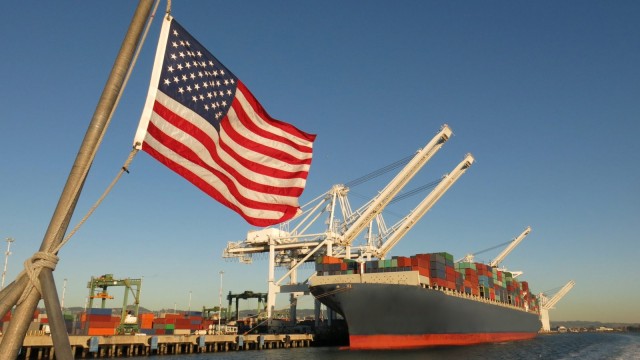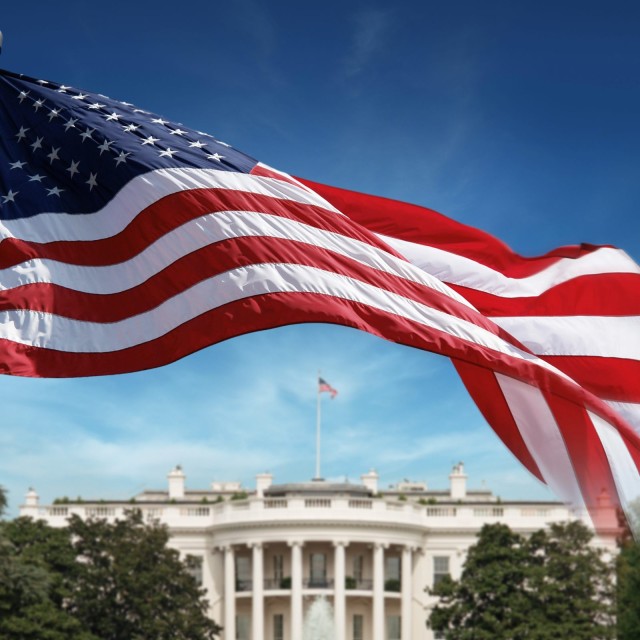July 11, 2025
The next act in the trade drama unfolds
After successfully pushing his "One Big Beautiful Bill" through Congress, Donald Trump is now setting the stage for the next act in the tariff drama.


To the point!

Sadly, Trump’s “divide and conquer” tactics appear to be working.
Last week, the United States shot itself in the foot with the passage of Donald Trump’s "One Big Beautiful Bill Act" (OBBBA). If investors now begin seriously doubting the sustainability of America’s soaring national debt (see Fig. 1), the consequences could be impossible to predict. But count on them being severe.
Fig. 1: Public debt
% of GDP
⬤ {series.name}: {point.y}
Buoyed by his legislative "victory", Trump has stepped up his aggressive tariff campaign. The 90-day moratorium on his so-called "reciprocal" tariffs – a name that was misleading to begin with – expired on Wednesday, reigniting tensions that had rattled markets back in early April. With this, the U.S. seems set to shoot itself in the other foot. If you’re in a hole, stop digging! But Trump doesn’t see himself in a hole – he imagines he’s on top of a mountain, proclaiming that the “Golden Age” of “growth in record numbers” has just begun. In reality, however, the U.S. economy could slow by as much as 0.8% as a direct result of these tariffs.
The tariff saga drags on
The idea that a comprehensive trade deal could be hammered out in 90 days – especially with dozens of trading partners at once – was always wildly unrealistic. Such negotiations usually span years. Predictably, no viable agreements have been reached this week. While Trump will inevitably tout “historic” outcomes – he doesn’t settle for anything less than superlatives when it comes to his rhetoric – the reality is that even the ar-rangements slated for the new August 1 deadline will amount to little more than vague statements of intent.
U.S. trade policy increasingly resembles Washington’s years-long TikTok saga. After bold threats and promises to ban the Chinese app, the U.S. keeps extending the deadline for action, pushing the issue indefinitely. Procrastination also rules in the tariff conflict. It’s becoming clear that Trump isn’t aiming at real solutions. What he craves is headline-grabbing "successes" and the ability to wield power and instill fear in others.
Regardless of where U.S. tariffs will settle after August 1 (or whenever…), one thing is all but certain: they will climb to levels unseen in modern memory (see Fig. 2). And let’s not kid our-selves: if a firm deal were to miraculously materialize, it will probably not stick. Trump would simply rewrite the rules again if it failed to deliver the outcomes he wants. This fundamental lack of reliability or stable parameters is the key challenge for busi-nesses trying to navigate supply chains and production strategies.
Fig. 2: Average tariff rate on U.S. imports
in %
⬤ {series.name}: {point.y}
Europe must stand united
A better approach would have been for governments around the world to refuse to engage with the tantrumprone "Rumpelstiltskin" in the White House from the very beginning. Yes, that would have meant economic sacrifices. But nowhere would the damage have been as severe as in the U.S. itself. While we are confronting a trade spat with one, albeit important player, Washington is squabbling with just about everyone.
Had the global community stood firm and followed the wisdom of the saying often attributed to George Bernard Shaw, "Don't wrestle with pigs. You both get dirty, and the pig likes it", the U.S. would likely have caved, and Trump’s bravado would have been exposed for what it is: empty and selfaggrandizing posturing.
Instead, even the European Union is struggling to act united. Germany and Italy, both heavily reliant on exports, are pushing for concessions to Washington, while France, Spain, and Denmark warn of selling out European interests. Sadly, Trump’s “divide and conquer” tactics appear to be working.
Dr. Moritz Kraemer, Chefvolkswirt und Leiter Research
Download To the point!
-
298.1 KB | July 11, 2025
This publication is addressed exclusively at recipients in the EU, Switzerland, Liechtenstein and the United Kingdom. This report is not being distributed by LBBW to any person in the United States and LBBW does not intend to solicit any person in the United States. LBBW is under the supervision of the European Central Bank (ECB), Sonnemannstraße 22, 60314 Frankfurt/Main (Ger many) and the German Federal Financial Supervisory Authority (BaFin), Graurheindorfer Str. 108, 53117 Bonn (Ger many) / Marie-Curie-Str. 24-28, 60439 Frankfurt/Main (Germany). This publication is based on generally available sources which we are not able to verify but which we believe to be reliable. Nevertheless, we assume no liability for the accuracy and completeness of this publication. It conveys our non-binding opinion of the market and the products at the time of the editorial deadline, irrespective of any own holdings in these products. This publication does not replace individual advice. It serves only for informational purposes and should not be seen as an offer or request for a purchase or sale. For additional, more timely in-formation on concrete investment options and for individual investment advice, please contact your investment advisor. We retain the right to change the opinions expressed herein at any time and without prior notice. Moreover, we retain the right not to update this information or to stop such updates entirely without prior notice. Past performance, simulations and forecasts shown or described in this publication do not constitute a reliable indicator of future performance. The acceptance of provided research services by a securities services company can qualify as a benefit in supervisory law terms. In these cases LBBW assumes that the benefit is intended to improve the quality of the relevant service for the customer of the benefit recipient. Additional Disclaimer for recipients in the United Kingdom: Authorised and regulated by the European Central Bank (ECB), Sonnemannstraße 22, 60314 Frankfurt/Main (Germany) and the German Federal Financial Supervisory Authority (BaFin), Graurheindorfer Str. 108, 53117 Bonn (Germany) / Marie-Curie-Str. 24-28, 60439 Frankfurt/Main (Germany). Deemed authorised by the Prudential Regulation Authority. Subject to regulation by the Financial Conduct Authority and limited regulation by the Prudential Regulation Authority. Details of the Temporary Permissions Regime, which allows EEA-based firms to operate in the UK for a limited period while seeking full authorisation, are available on the Financial Conduct Authority’s website.



